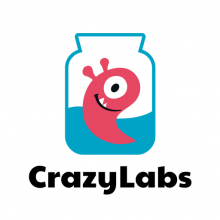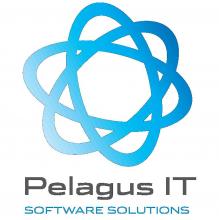Software Engineering (4+1)
1. General Information
The second cycle studies in software engineering aim to provide quality and top European education and training of software engineers who will be able to bear the technical and economic responsibility of designing, developing, using and maintaining complex software systems. Upon completion of their studies, these engineers will be able to take responsible positions in the processes of planning, designing, developing and running software projects, including their business aspects.
- Name of the proposer: University "Ss. Cyril and Methodius University in Skopje, Faculty of Information Sciences and Computer Engineering - FINKI
- Study Program Name: Academic Second Cycle Software Engineering Studies
- Scientific-research area: technical-technological (2)
- Field: Computer Science and Informatics (212)
- Area: Software Engineering
- The value of postgraduate studies is 60 ECTS or 120 ECTS credits .
- Duration of studies: 2 or 4 semesters .
- One academic year consists of two semesters lasting 30 weeks (1 semester = 15 weeks).
- The first semester consists of subjects, while the second has a smaller number of subjects and is reserved for the final project, ie. for the master's thesis.
- Admission Requirements : Completed undergraduate studies in the field of informatics or computer technology and informatics with a minimum of 240 credits. For study directions that carry less than 240 credits, exams offered in the introductory layer are added.
- Introductory layer : Students who have earned less than 240 credits during their studies are offered a set of differential introductory courses. After their successful realization, the student acquires the right to continue with the second year of postgraduate studies.
- First semester: 3 compulsory courses and 2 electives, one of which may be from the University list.
- Second semester: 1 compulsory and 1 elective, which can be from the university list (only if in the first semester the subjects are selected at the Faculty level) and a final project of 18 ECTS
- 1 ECTS credit corresponds to 30 hours of total work engagement
- The number of contact hours is 4
- The academic title or degree obtained after graduation is
- Master in Information Science and Computer Engineering in the field of Software Engineering
2. Studies
Table 3: List of Postgraduate Courses
| РБ | CODE / Subject | Semester | M / E | ECTS |
| 1 | SI-Z-01 Software lifecycle management | IX | M | 6 |
| 2 | SI-Z-02 DevOps software development | IX | M | 6 |
| 3 | СE-M-03 Software Design Templates | IX | M | 6 |
| 4 | Elective | IX | E | 6 |
| 5 | Elective | IX | E | 6 |
| 6 | SI-Z-04 Software quality management | X | M | 6 |
| 7 | Izboren subject | X | E | 6 |
| 8 | Master Thesis | X | M | 18 |
At least one elective should be chosen from the offered electives in Table 4. At most one of the electives can be chosen from the University list of master's degree programs. A maximum of two elective courses can be selected from the courses offered in the other second cycle studies at the Faculty of Information Sciences and Computer Engineering.
Table 4: Electives
| РБ | New code / Subject | Semester | ECTS | |
| 1 | SI-I-01 Time series analysis and forecasting | IX | 6 | |
| 2 | SI-02 Video game design and visual effects | IX | 6 | |
| 3 | СE-E-03 Medical Informatics | IX | 6 | |
| 4 | СE-E-04 Multimedia and scalable web | IX | 6 | |
| 5 | СИ-И-05 Model based software engineering | IX | 6 | |
| 6 | SI-06 Software Engineering for Critical Systems | X | 6 | |
| 7 | СE-E-07 Engineering Ethics | X | 6 | |
| 8 | SI-08 ERP Business Systems Engineering | X | 6 | |
| 9 | СE-E-09 Software reliability | X | 6 | |
| 10 | СE-E-10 Shape Recognition | X | 6 | |
| 11 | SI-I-11 Systems fordecision support | X | 6 | |
| 12 | СE-E-12 System Integration | X | 6 | |
| 13 | СE-E-13 Software Architectures | X | 6 | |
| 14 | IS-I-06 Analysis and Design of Information Systems | IX | 6 | |
| 15 | IT-Z-02 Advanced mobile and web applications | IX | 6 | |
| 16 | ITMW01 Advanced Software Project Management | IX | 6 | |
| 17 | IT-I-05 Data Visualization | IX | 6 | |
| 18 | КН-M-03 Formal methods | IX | 6 | |
| 19 | IT-Z-03 Internet Security & Privacy | IX | 6 | |
| 20 | IS-I-14 Multimodal interaction | X | 6 | |
| 21 | IS-I-18 Intelligent mobile applications | X | 6 | |
| 22 | ITMS01 Advanced Software Requirements Engineering | X | 6 | |
The student can choose a subject from the list of offered elective courses from all study programs of the second cycle of studies. The list of offered electives can be found on this link .









